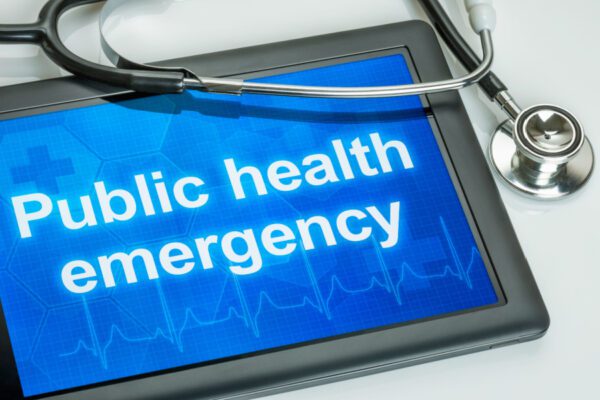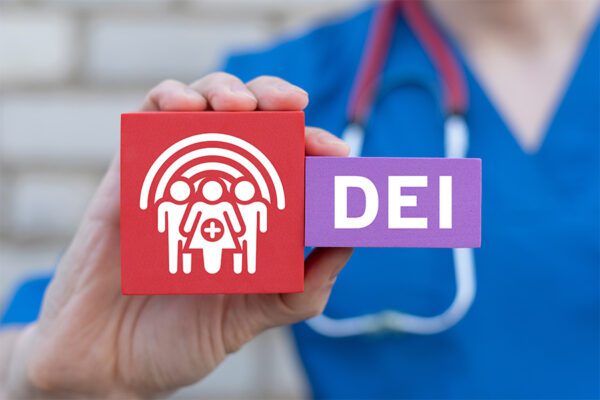Date Issued: April 2023
Background
The Public Health Emergency (PHE), originally declared by HHS in March 2020 and renewed every three months since then. The emergency is scheduled to end May 11, 2023.
Public Health Emergency
When Does It End – May 11, 2023
Legal Rules Affected:
- Health plan coverage of COVID-19 diagnostic testing;
- Health plan coverage of COVID-19 vaccines and preventive services;
- Stand-alone telehealth plans no longer allowed;
- Telehealth providers prescribing controlled substances;
- Medicaid/CHIP Coverage Special Enrollment; and
- Qualified High Deductible Health Plan (QHDHP) Coverage for COVID-19 testing and treatment below the deductible.
Diagnostic Testing
During the PHE, health plans were required to cover the cost of COVID-19 diagnostic tests at no cost and were required to pay the published cost of such tests to out-of-network providers. This obligation to pay for COVID-19 testing with no cost sharing will end on May 11, 2023 when the PHE expires.
The agencies are encouraging plans to continue this coverage, but many fully insured carriers have already announced they will be ending such coverage as soon as the PHE expires. Employers with self-funded plans may be asked to decide whether to continue such coverage beyond the end of the PHE.
Employer Action Steps:
- Fully insured employers – determine if health plan carrier intends to end coverage for COVID-19 testing immediately at the end of the PHE.
- Self-funded employers – decide whether to immediately end coverage for COVID-19 testing at the end of the PHE.
- If plan documents were amended to reflect coverage of COVID-19 testing, those documents may need to be amended to eliminate that coverage.
- Eliminating coverage for COVID-19 testing may be a material modification that may require a Summary of Material Modifications (SMM) to covered participants. Employers do not need to duplicate efforts if the carrier/TPA notifies participants of the change in coverage.
Vaccines
During the PHE, health plans were required to cover COVID-19 vaccines and other preventive services at no cost at both in- and out-of-network providers. The obligation to cover COVID-19 vaccines with no cost sharing at in-network providers will continue after the end of the PHE. However, plans will no longer be required to cover vaccines at out-of-network providers and can charge their normal cost sharing amount for out-of-network preventive services.
Again, many fully insured carriers have already announced they will no longer coverage COVID-19 vaccines at out-of-network providers with no cost sharing once the PHE expires. Employers with self-funded plans may be asked to decide whether to continue such out-of-network coverage beyond the end of the Pn coverage.
Stand-Alone Telehealth Plans
Employer-sponsored stand-alone telehealth plans (that is telehealth services offered to employees who are not enrolled on the employer’s group health plan) will typically violate the Affordable Care Act (ACA). During the PHE, employers were allowed to offer stand-alone telehealth services to employees who were not eligible for the employer’s major medical plan without violating the ACA. (This relief did not extend to employees who were eligible for, but not enrolled in the employer’s major medical plan.) This temporary relief will expire when the PHE ends.
Once the PHE ends, telehealth coverage for employees who are not enrolled in the employer’s group health plan will once again violate the ACA. This includes not only employees who are not eligible for coverage under the employer’s group health plan (who were eligible for the PHE temporary relief) but also employees who are eligible for but not enrolled in the employer’s group health plan. It may be possible to avoid this outcome by applying the HRA integration rules to the telehealth plan.
Telehealth Plans and Controlled Substances
Prior to the pandemic, telehealth providers could not prescribe controlled substances unless the patient first had an in-person visit with a provider. This rule was relaxed by the Drug Enforcement Administration (DEA) for the duration of the PHE. Once the PHE ends, the old rule will be reinstated and patients will once again need an in-person visit before their telehealth provider can prescribe any controlled substance. The DEA has proposed rules that would modify, but not eliminate, this requirement but they are not yet finalized.
This most often affects mental health patients but could apply to any telehealth user being prescribed a controlled substance.
Medicaid/CHIP Coverage Special Enrollment
During the PHE, state Medicaid programs generally were not terminating coverage of Medicaid recipients or otherwise checking eligibility for Medicaid on an ongoing basis (referred to as the “continuous enrollment condition”). This continuous enrollment condition ended on March 31, 2023 in anticipation of the end of the PHE and states can resume their normal eligibility and enrollment practices after that date, which may result in individuals who were previously enrolled in Medicaid losing that coverage if they no longer meet the state’s eligibility requirements (e.g. based on income). Different states are preceding at different speeds as to how quickly they are reviewing eligibility and terminating coverage for ineligible recipients.
Loss of Medicaid eligibility is a HIPAA special enrollment event. Any employee or dependent who was previously enrolled in Medicaid and loses that coverage has 60 days to request special enrollment on the employer’s group health plan. (Note that if the loss of Medicaid coverage occurs during the Outbreak Period, the 60-day special enrollment is suspended until June 9, 2023 and the employee will have under August 8, 2023 to request special enrollment).
Technically, the 60-day special enrollment window is measured from the date coverage is lost but we anticipate that there will be many cases where the employee will be notified after the fact they have lost Medicaid coverage, perhaps even outside the 60 day special enrollment window. Employers may have to consider relaxing the special enrollment window, e.g. by measuring it from the date the employee is informed that their Medicaid coverage has been terminated (provided the carrier/stop loss carrier will agree).
QHDHPs and Coverage for COVID-19 Testing and Treatment
Normally, a Qualified High Deductible Health Plan (i.e., a HDHP compatible with making contributions to a health savings account (HSA)) may not cover any medical expenses, other than preventive care, until the minimum required QHDHP deductible is met. In 2020, the IRS issued guidance relaxing this rule with respect to COVID-19 testing and treatment and stated that a QHDHP would not lose its qualified status if it covered such expenses before the deductible is met.
This relief was not tied specifically to either the NE or the PHE, and the IRS has indicated they will allow the relief to continue for now but they will be reviewing the propriety of continuing this relief now that the NE and PHE have ended. They have also promised that any future change to this guidance will not require the QHDHP to change coverage mid-plan year.
QHDHPs are not required to cover COVID-19 testing and treatment below the deductible. They are merely permitted to do so without losing their qualified status.
While every effort has been taken in compiling this information to ensure that its contents are totally accurate, neither the publisher nor the author can accept liability for any inaccuracies or changed circumstances of any information herein or for the consequences of any reliance placed upon it. This publication is distributed on the understanding that the publisher is not engaged in rendering legal, accounting or other professional advice or services. Readers should always seek professional advice before entering into any commitments.
Published by Benefits Comply © 2023 Benefit Comply, LLC
Material posted on this website is for informational purposes only and does not constitute a legal opinion or medical advice. Contact your legal representative or medical professional for information specific to your legal or medical needs.




